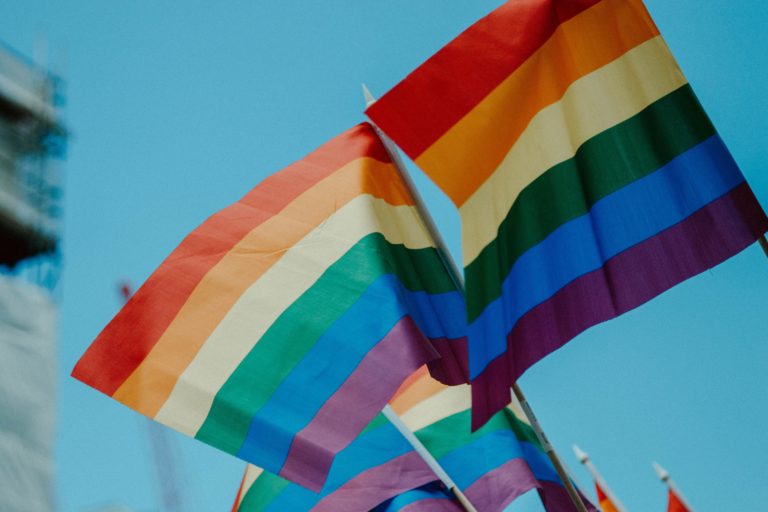

Even as cultural attitudes shift, LGBTQ+ individuals still face discrimination in health care settings. These communities tend to have higher incidence rates for certain cancers, and on top of these concerns, older individuals must also navigate issues related to aging and the ongoing pandemic, compounding the complexity of their concerns.
Research by the National LGBT Cancer Network has long demonstrated that the risks of being diagnosed with certain cancers are disproportionately higher in LGBTQ+ communities in comparison to their heterosexual counterparts. This research also shows that health outcomes for certain cancers are poorer in LGBTQ+ communities.
The reasons for LGBTQ+ health care disparities are complex but unequivocal, founded in many socio-economic and cultural factors. These include higher rates of smoking and vaping; more obesity in the lesbian and female bisexual communities; broader acceptance and use of illegal substances and alcohol, especially coupled with sexual activity, in the gay male community; and greater numbers of people living with chronic HIV/AIDS.
Poorer health outcomes can be attributed to a lack of training focused on the specific health care needs of LGBTQ+ communities, who may also be affected by homophobic and trans-phobic discriminatory language and attitudes, whether from a health care professional or as part of a health care system’s policies. Some patients may also be harassed, neglected, or denied treatment outright based on providers’ cultural or religious beliefs.
Non-disclosure of sexual orientation is especially prevalent in the older and senior LGBTQ+ communities, and can be compounded by minimal or complete absence of familial support. They may also lack culturally competent home care, rehabilitation, or nursing home services. According to recent independent surveys by the Human Rights Commission (HRC), the Centers for Disease Control (CDC) and Advocacy and Services for LGBT Elders (SAGE), there is consensus that LGBTQ+ persons affected by cancer have an increased risk of severe illness or death if diagnosed with COVID-19. 1-3
For older and senior LGBTQ+ communities affected by cancer and the coronavirus, these disparities are magnified, resulting in greater experiences of fragility, distress, and hopelessness.
According to a report from the Centers for Disease Control and Prevention (CDC) released in February 2021, gay, lesbian, and bisexual people in the United States have higher rates of self-reported conditions associated with severe COVID-19 complications than heterosexual people. These include asthma, heart disease, obesity, kidney disease, stroke, and cancer. Within these populations, Black and Hispanic individuals are particularly vulnerable.2
Older persons affected by cancer are less likely to have long-term and stable partnerships than their heterosexual counterparts. They are more likely to have reduced or absent familial interactions, a smaller social support network and a greater need for professional home care, versus unpaid care from a friend or family member. They also often have already experienced significant loss of peer relationships as a result of HIV/AIDS, which diminishes the possibility of creating future community. Those who do have strong relationships face issues associated with aging, including the death of partners and friends.
Finally, many older LGBTQ+ persons with cancer grew up with covert and overt messages that their lifestyles and/or bodies were wrong, unhealthy, and diseased. Having survived stigma and the HIV/AIDS epidemic, coping with another public health crisis has brought up feelings of disorientation and displacement. As stated by a participant of a support group for gay men with cancer at CancerCare, “I was rejected by my family. I have already survived one pandemic where I lost all those closest to me. [I] have been, for years, trying to live with cancer and now am facing another pandemic. I give up.”
As the world shifted, ever so suddenly, in March of 2020 as a result of COVID-19, mandates for sheltering in place, quarantining and social distancing left older LGBTQ+ persons in even greater isolation than before, with few outlets for support and assistance.
In the words of Movement Advancement Project (MAP), “As social isolation reaches crisis levels, financial resources dry-up, and the safety net is stretched thin, many … LGBT older persons remain estranged from family and religiously affiliated institutions on which they [relied] before and during crises. Consequently, we are witnessing an exponential increase in LGBT older people relying on LGBT aging organizations and others whom they trust to deliver life-saving help. And, as a result, the COVID-19 pandemic is uniquely impacting not only LGBT older people, but also the organizations that serve them.”4
In a recent article on these aging populations and COVID-19, the Association of Health Care Journalists suggests ways to achieve better outcomes. These include education and outreach to address specific needs, working to make policies inclusive to chosen families rather than just biological ones, using correct gender and pronoun language, and understanding that medical inclusion. They call particular attention to the mental health of these individuals, who may be impacted by feelings of isolation and trauma during the pandemic.5
Whether during the coronavirus pandemic or after, providers who wish to better serve older individuals in LGBTQ+ communities must first meet patients where they are. This means recognizing that care for an LGBTQ+ individual is not “one size fits all.” As with any underserved population, it is critical to welcome voices from LGBTQ+ communities to improve access to care, as well as to improve the quality of that care. There is no doubt that eliminating health care disparities is a worthwhile goal—and the journey to achieving it begins with openness and with humility today.
References
- Human Rights Campaign. Research on LGBTQ People and the COVID-19 Pandemic. 2021. https://www.hrc.org/resources/research-on-lgbtq-people-and-the-covid19-pandemic,
- Schmidt, S. LGBTQ people face higher COVID-19 risks, but no one knows the true toll on the community. Feb. 17, 2021. The Washington Post. https://www.washingtonpost.com/dc-md-va/2021/02/17/lgbtq-covid-cdc/,
- SAGE. SAGE’s COVID-19 Response. December 7, 2020. https://www.sageusa.org/sages-covid-19-response/
- MAP, SAGE, and Center for Americna Progress. LGBT Older People, and COVID-19.May 2020. https://www.lgbtmap.org/file/2020%20LGBTQ%20Older%20Adults%20COVID.pdf
- Seegert L. COVID-19 is hitting older LGBTQ adults especially hard. April 22, 2020. https://healthjournalism.org/blog/2020/04/covid-19-is-hitting-older-lgbtq-adults-especially-hard/